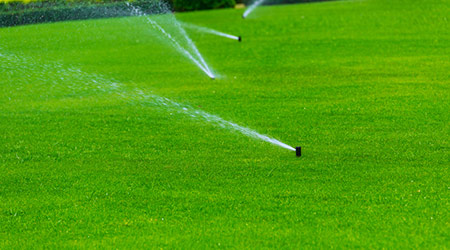Grounds departments that oversee aging irrigation systems are often in crisis management mode, responding to both minor and catastrophic pipe and system failures, according to an article from Facility Maintenance Decisions on the FacilitiesNet website.
The challenge is that most systems are expected to live far beyond their intended life cycles. Two developments — aging systems prone to more frequent leaks and water shortages nationwide — have combined to put pressure on grounds managers.
The result it that managers need to find ways to ensure that systems operate efficiently while still maximizing the appearance of grounds.
By taking steps to streamline department maintenance, following technology advances in irrigation sensors and controls, and providing effective technician training, facility managers will be able to improve overall system performance.

 Healthcare and Resilience: A Pledge for Change
Healthcare and Resilience: A Pledge for Change Texas Health Resources Announces New Hospital for North McKinney
Texas Health Resources Announces New Hospital for North McKinney Cedar Point Health Falls Victim to Data Breach
Cedar Point Health Falls Victim to Data Breach Fire Protection in Healthcare: Why Active and Passive Systems Must Work as One
Fire Protection in Healthcare: Why Active and Passive Systems Must Work as One Cleveland Clinic Hits Key Milestones for Palm Beach County Expansion
Cleveland Clinic Hits Key Milestones for Palm Beach County Expansion